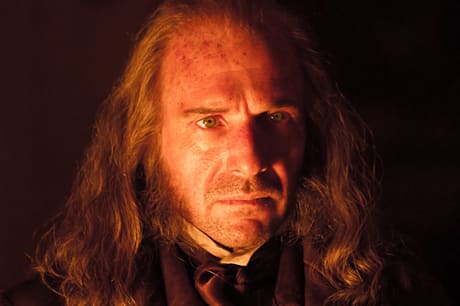When tackling a film adaptation of a novel such as Charles Dickens' Great Expectations, which has been adapted cinematically and for the BBC multiple times, it's good to have some sort of unique angle or interpretation of the text.
Alfonso Cuarón set the story in modern day NYC and last year's BBC adaptation broke the tale down into three arcs and omitted key characters to focus on the central figures, such as a younger than usual Miss Havisham.
Mike Newell similarly chooses to keep Miss Havisham (Helena Bonham Carter) a younger age, which is technically closer to the book than most adaptations, but adheres to the story with a safety and briskness that manage to dull the intensity of the many character revelations and experiences unintentionally.
The template is the same, with young orphan boy Pip (Toby Irvine) sneaking food from his brother-in-law — posited here more so as a father figure — to feed escaped criminal Magwitch (Ralph Fiennes). A seemingly one-off good deed, this event comes back to Pip (Jeremy Irvine) later in life after he's invited to the dilapidated mansion by the reclusive Miss Havisham to play with her adopted daughter, Estella (Holliday Grainger/Helena Barlow).
With the appropriate costume and set design, and a solemn, mature approach to direction, Newell handles Pip's eventual shift from blacksmith to "gentleman" with the standard issue class system satire expected. The only real distinction in form, save the comparison of upper-class youths to modern child celebrities, is an occasional tendency towards broad pratfalls and exaggerated comedy (the movie does feature David Walliams, after all).
What's odd about this period drama is that even though everyone does a fair job with their respective roles and Newell has done his best not to mangle the source material, Pip's eventual romantic dalliance with Estella doesn't pack quite the same punch as other adaptations when it all unfolds. Similarly, when Pip learns of who it was that financed his ascent into society, there's something missing on the emotional front.
The problem is that there's far too much story crammed into the two-hour runtime to do justice to the intense heartache and worldly frustration of the novel. Even Cuarón's decidedly loose adaptation packed punches where they counted most, making Pip's devastation highly palpable.
While serviceable, nicely framed and well performed (by Fiennes, in particular), Great Expectations is a forgettable adaptation that pales in comparison to many of its predecessors.
(BBC)Alfonso Cuarón set the story in modern day NYC and last year's BBC adaptation broke the tale down into three arcs and omitted key characters to focus on the central figures, such as a younger than usual Miss Havisham.
Mike Newell similarly chooses to keep Miss Havisham (Helena Bonham Carter) a younger age, which is technically closer to the book than most adaptations, but adheres to the story with a safety and briskness that manage to dull the intensity of the many character revelations and experiences unintentionally.
The template is the same, with young orphan boy Pip (Toby Irvine) sneaking food from his brother-in-law — posited here more so as a father figure — to feed escaped criminal Magwitch (Ralph Fiennes). A seemingly one-off good deed, this event comes back to Pip (Jeremy Irvine) later in life after he's invited to the dilapidated mansion by the reclusive Miss Havisham to play with her adopted daughter, Estella (Holliday Grainger/Helena Barlow).
With the appropriate costume and set design, and a solemn, mature approach to direction, Newell handles Pip's eventual shift from blacksmith to "gentleman" with the standard issue class system satire expected. The only real distinction in form, save the comparison of upper-class youths to modern child celebrities, is an occasional tendency towards broad pratfalls and exaggerated comedy (the movie does feature David Walliams, after all).
What's odd about this period drama is that even though everyone does a fair job with their respective roles and Newell has done his best not to mangle the source material, Pip's eventual romantic dalliance with Estella doesn't pack quite the same punch as other adaptations when it all unfolds. Similarly, when Pip learns of who it was that financed his ascent into society, there's something missing on the emotional front.
The problem is that there's far too much story crammed into the two-hour runtime to do justice to the intense heartache and worldly frustration of the novel. Even Cuarón's decidedly loose adaptation packed punches where they counted most, making Pip's devastation highly palpable.
While serviceable, nicely framed and well performed (by Fiennes, in particular), Great Expectations is a forgettable adaptation that pales in comparison to many of its predecessors.
